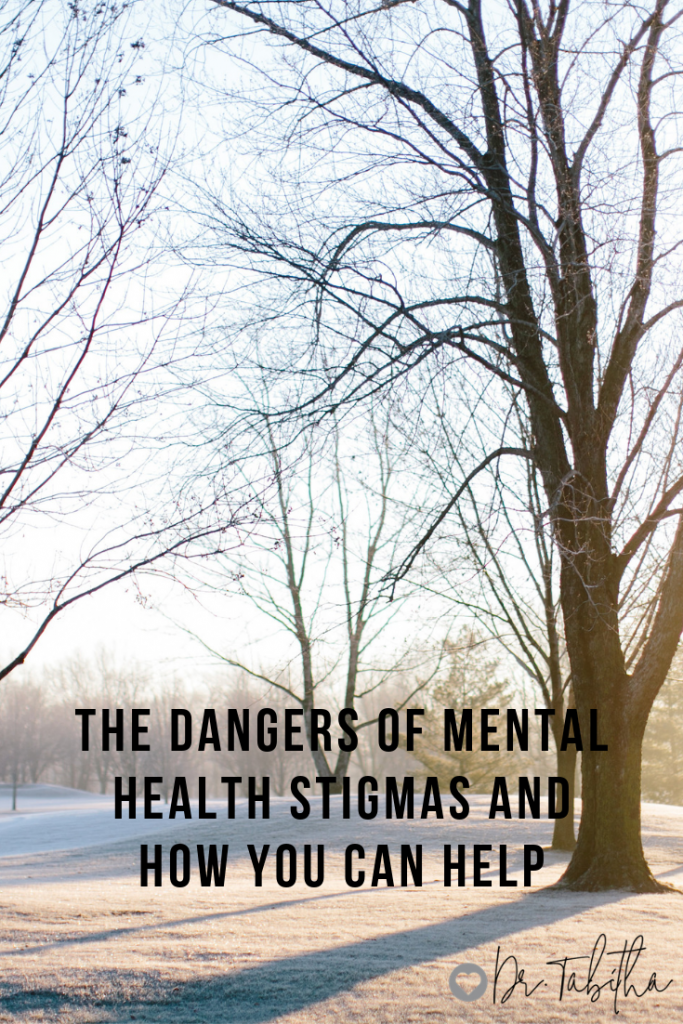
Have you ever been in a room full of strangers and felt like everyone is staring at you or whispering about you? What if you found out that those people didn’t want to work with you? Or if they told you they didn’t want you to marry into their family? I would feel incredibly self-conscious and embarrassed. These strangers are judging me without even knowing me! This is what mental health stigmas can feel like for many people.
The statistics are staggering.
Sadly, recent polls in the United States found that our society negatively views people with mental illness. A study published in 2010 identified that the two biggest reasons young people do not seek help for their mental health were mental health stigmas and embarrassment.
90% of people who die by suicide had an underlying mental illness. According to a recent poll completed by National Alliance for Mental Illness, 1 in 5 adults in the United States experience mental illness in any given year. That’s approximately 45 million people in this country alone. And yet, more than 60% of those people will not receive treatment or resources for their mental illness. In fact, they may not even recognize that they could. Much of this is tied into mental health stigmas and the judgement for asking for help in the first place.
Fortunately, there are some simple things that you and I can be doing in our everyday life to support the eradication of mental health stigmas.
Talk more openly about mental health stigmas.
Much of the mental health stigma perpetuates itself because people do not speak about mental illness openly or honestly. Whether is it about someone we know, or speaking about ourselves, we all have an experience with mental illness. Speaking about it and sharing with others can combat the isolation that mental illness stigma creates. Talking about it can also increase your own knowledge about different types of mental illness. When people feel more connected and less isolated they are more likely to get help. By having a conversation with someone you may not know it, but you could be saving their life.
Educate yourself about the stigmas.
There are many misconceptions about mental health – from how it looks, to how people struggling with mental illness may act. Just one of many that is incorrect is that people with mental illness are more likely to be violent. In reality, the opposite is true. People who have a mental illness are 2.5 times more likely to be victims of violence than perpetrators of violence.
Educating yourself not only stops the cycle of mental health stigmas and isolation, but also better prepares you to support people who are struggling. You might know a friend, a family member or a stranger who is battling mental illness. If you want to learn more about mental illness but don’t know where to start, the National Alliance on Mental Illness has resources and information about ways to get involved or to simply to become more knowledgeable.
Know what you can do about stigmas.
Mental health costs America nearly 200 billion dollars in lost earnings every year according to US General Surgeons report . Nearly 60% of adults do not receive treatment for their mental illness. Those statistics are astounding. When I think about the reasons why most people do not seek treatment – mental health stigmas or embarrassment, it is hard for me to find a reason to not fight against mental health stigmas. Whatever your reason – whether it is to lower the number of suicides, help a friend in need, or be better for yourself, it is time to change how our society views and treats mental illness. Follow https://www.instagram.com/namicommunicate for more information and ways you can get involved.
If you or someone you know is a victim of mental health stigmas and considering suicide, you are not alone, reach out to the National Suicide Prevention Lifeline: 1-800-273-8255, toll free, open 24 hours everyday.
Learn how you can talk about suicide and help yourself or someone you love cope with depression.






1 Comment
Leave your reply.